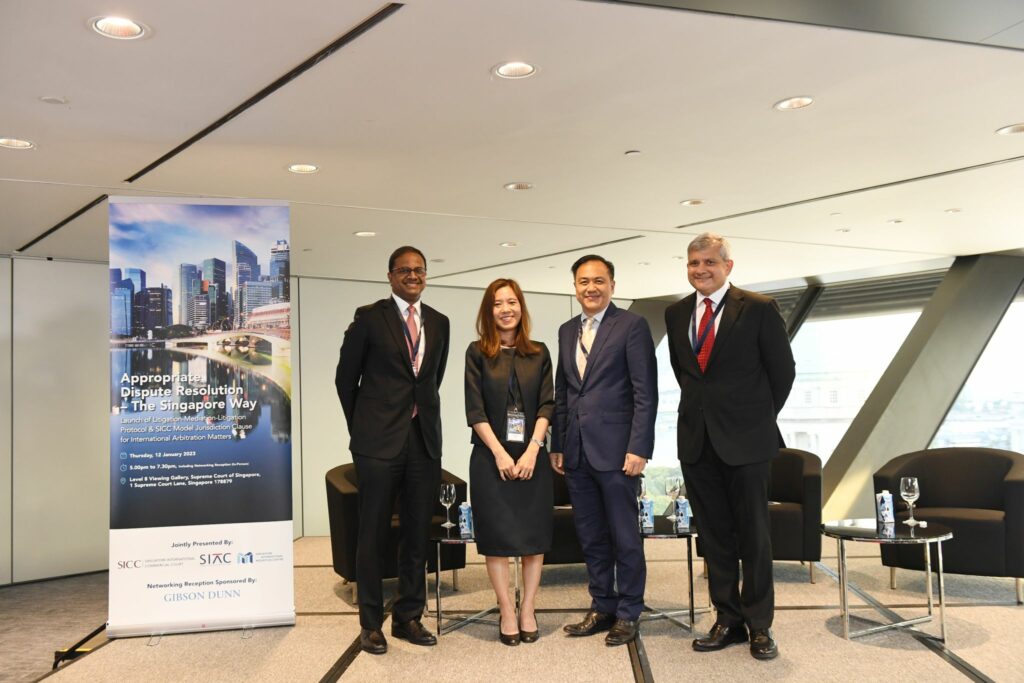
The Singapore International Commercial Court (SICC) and the Singapore International Mediation Centre (SIMC) have collaborated to establish a litigation-mediation-litigation (LML) framework with a view to promoting the amicable resolution of international commercial disputes. Parties may choose to adopt the LML Protocol when contracts are being negotiated by incorporating the model LML Clause into their agreements. Alternatively, parties may by a separate agreement adopt the LML Protocol at any other time, such as after a dispute has arisen. It will come into effect from 12 January 2023.
The LML Protocol sets out the procedure under which disputes commenced in the SICC are to be referred to the SIMC for mediation, and the procedure to continue or terminate proceedings in the SICC on the conclusion of the mediation. Amongst other things, the LML Protocol also provides for a case management stay of the SICC proceedings for up to eight weeks after the commencement of mediation, subject to any extension by the Court for good reasons, and the LML Protocol also recognises that the Court may grant interim relief to preserve a party’s rights despite a case management stay.
“When we introduced the standalone rules for the court last April (SICC Rules 2021), one important aspect was to facilitate amicable resolution of disputes through alternative methods such as mediation. This is in keeping with our general principle of the expeditious and efficient administration of justice,” said Justice Philip Jeyaretnam, President of the SICC.
“Establishing the LML Protocol with SIMC provides clear guidance to parties on how they may attempt settlement through mediation for disputes before the SICC. They have the flexibility to incorporate the model LML Clause into their contracts, or at any other time such as after a dispute has arisen,” added Justice Jeyaretnam.
“Leveraging the expertise of two high-quality dispute resolution institutions, this mechanism is in line with international trends in mixed-mode dispute resolution and reflects the Court’s steadfast support for alternative dispute resolution methods,” said Mr Chuan Wee Meng, SIMC’s CEO.
“The LML Protocol provides an integrated option for effective dispute resolution, combining the benefits of mediation such as confidentiality, expediency and creative solutioning, with the reciprocal recognition, registrability and enforceability of an international commercial court order,” said Mr Chuan.
How the LML Protocol works
Parties who have commenced proceedings with the SICC and are not guided by a Litigation-Mediation-Litigation clause in their contract may opt to mediate under this Protocol or be directed by the Court to do so. Upon commencement of mediation at SIMC, SICC may then pause litigation proceedings for up to eight weeks. Most mediations at SIMC take one day and enjoy a 70-80 per cent settlement rate.
If the mediation is successful, parties may choose to have the settlement terms recorded as an order of court. If there is a partial settlement, parties may choose to have the settled items recorded as an order of court and seek SICC’s directions on the conduct of proceedings for the remaining issues, in accordance with the SICC Rules 2021.
Mediation is a powerful method of resolving a wide range of disputes, including large, complex, high-value commercial cases. In 2021, the total value of cases filed for mediation at SIMC rose substantially, equalling the US$3 billion total dispute value for the previous six years (2014-2020). In 2022, total dispute value further rose to US$4.84 billion.
For its key highlights, please refer to the Infographics in Annex A and for the LML Protocol, please refer to Annex B.
Annex A: Lit-Med-Lit Protocol Infographic
Annex B: Details of the Litigation-Mediation-Litigation Protocol
